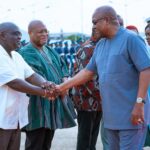Mr. Ken Ofori-Atta is not just another public official under investigation—he is the architect of Ghana’s modern fiscal policy and the face of some of its most opaque financial undertakings. Now facing scrutiny from the Office of the Special Prosecutor (OSP) over five major cases involving state contracts and funds, he has cited health complications as the reason for missing an in-person interrogation scheduled for June 2, 2025. His legal team has requested a virtual session under the Electronic Transactions Act while submitting medical documentation. While this may sound reasonable, we must carefully examine the facts.
Ghanaians are not unfamiliar with the controversies tied to Mr. Ofori-Atta’s tenure. Chief among them is the Petroleum and Minerals Revenue Assurance Scandal, where Strategic Mobilisation Ghana Limited (SML), under questionable contractual terms, was engaged by the Ghana Revenue Authority (GRA) to audit and monitor petroleum and mineral liftings. A December 2023 investigative report by The Fourth Estate revealed that SML was paid over GH₵1 billion in just three years for services that lacked clear legal backing and often duplicated the roles of other agencies. Shockingly, GRA could not even confirm the cost-benefit value of these contracts, raising concerns about procurement breaches and fiscal recklessness.
Then there’s the Electricity Company of Ghana (ECG) and BXC contract saga, where a $100 million prepaid metering contract with Beijing Xiao Cheng Technology (BXC) was terminated under circumstances that the OSP believes warrant criminal investigation. The deal, if carried through, could have modernized ECG’s metering infrastructure. Its cancellation is said to have paved the way for another contract awarded under less transparent conditions.
Arguably the most emotionally charged issue is the National Cathedral Project. Billed as a “monument of faith and unity,” it has become a monument of mismanagement. Over $58 million in public funds were allegedly disbursed without parliamentary approval or a value-for-money audit. Reports suggest that payments were made to architectural firms and consultants even before a comprehensive construction plan had been finalized. This includes $6 million paid to a U.S.-based architect and several millions more in “mobilization” fees, all while the site remains a fenced-up excavation.
Another matter under investigation is the Ambulance Procurement Deal. The Ministry of Health contracted Service Ghana Auto Group to supply and maintain 307 ambulances, with project financing of over €13 million. Yet, several of the ambulances were reportedly delivered without proper equipment, and a significant portion of the total procurement was allegedly front-loaded in payments, raising red flags about contract inflation and kickbacks. The deal echoes previous scandals where emergency medical procurement was used as a conduit for illicit enrichment.
Also under scrutiny is the GRA Tax P-Fund Account, a fund established for priority revenue disbursements. Allegations here include unauthorized withdrawals, discretionary spending, and a lack of transparent oversight. Some reports point to transfers totaling hundreds of millions of Ghana cedis without parliamentary appropriation or statutory backing.
Mr. Ofori-Atta’s medical concerns must be handled with empathy, but they cannot override the collective demand for accountability. Since January 2025, his interactions with the OSP have been marked by delays, indefinite travel notices, vague doctor’s reports, and legal counter-motions. On 12 February 2025, he was declared a fugitive after refusing to appear, only to be delisted on 18 February after promising to return in May. This delay tactic—lawful as it may be—undermines the credibility of anti-corruption enforcement and widens the gap between public accountability and elite impunity.
Compare this to how ordinary Ghanaians are treated when they default on a court summons or police invitation. They are often arrested immediately, remanded without fanfare, and denied even basic accommodations. Yet high-ranking political actors seem able to negotiate the terms of their accountability. This duality threatens the moral foundation of Ghana’s justice system.
To preserve public trust, the OSP must act decisively and transparently. If Mr. Ofori-Atta is allowed to participate virtually, clear terms and timelines must be enforced. His health cannot become a permanent shield. Once medically stable, he must appear in person to answer for his role in the gross mismanagement of billions in public funds. If innocent, he will be vindicated. If not, then the full weight of the law must be applied without hesitation.
True justice in Ghana will not be measured by how we treat the weak but by whether we have the courage to hold the powerful accountable. This case is a test of our republic’s integrity. We cannot fail it.
Kay Codjoe

















